About your progress
It's the simple things in life that are the most extraordinary;
only wise men are able to understand them.
Paulo Coelho
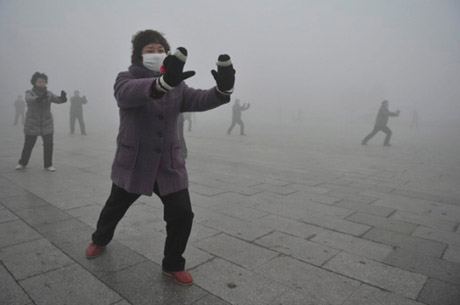
Photo : AP Photo
Intelligent life may be in it's very young stage in the observable Universe.
I suggest that there are other, far more advanced intelligent life forms.
The Tao Te Tsjing proposed a utopian vision of society based on the notion of a wise and noble ruler whose strength of
moral character (de) inspired moral behavior throughout the country.
Wise and noble rulers have learned that Nature does nothing uselessly. They know that Nature is peaceful, and her secret
is patience. They know there is something infinitely healing in the repeated refrains of nature, the assurance that day
comes after night, and spring after winter. Wise rulers know that "the world is not to be put in order; the world is order.
It is for us to put ourselves in unison with this order (Henry Miller)."
Optimism is the foundation of progress.
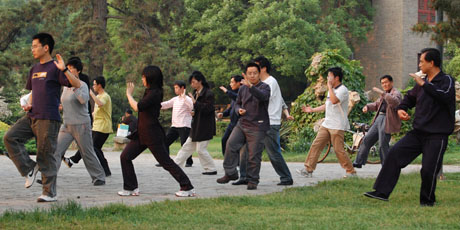
Progress consists in the elimination of nonessentials.
Real Tai Chi Chuan is rare to find.
A Chinese martial arts system will have a lineage, meaning the transmission from master to student from generation to
generation. Some systems have complete lineages, others are very strange, and many lineages are historically suspect.
The history and the training methods of all Chinese martial arts were nearly almost passed down from teacher to student
as opposed to be recorded in written form. Subsequent histories simply copied verbatim what the earlier histories had said.
This process continued up until the present; masters who claim to be able to start fires with their inner power,
advertisements for"death touch" are often simply hoaxes or tricks that have nothing to do with any of the goals of martial
arts.
The result is that most Chinese martial arts history tends to be simply a rehash of old unsubstantiated tales. Oftentimes
the history of Chinese martial arts is little more than records of who studied with whom and for how long; who could or did
defeat who and who was the 'father' of what system. The conclusion to draw from all this is to take martial arts history
with a large grain of salt. Chinese martial arts history has been graced by many outstanding practioners, but it has been
cursed by bouts of childish exaggeration. In that regard it is no different than the martial arts histories of any nation.
(E. Guo and B. Kennedy).
Real Tai Chi Chuan is rare to find in China and in the world for that matter.
Progress is the elimination of non-essentials.
To me the history of Tai Chi Chuan is 'a non-essential'.
Lineage is a non-essential.
Philosophy, skill and practice of the art are 'the essentials'.
However, follow your own dreams.
Just make sure to have fun too, keep your purse close.
What is essential, and, what is non-essential ?
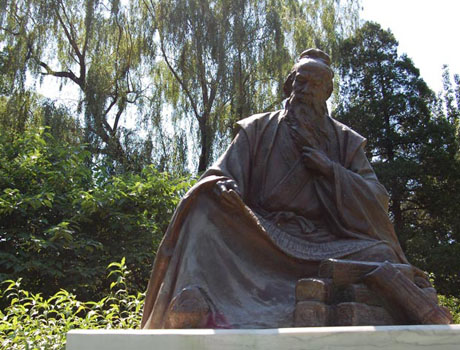
Good questions.
Unlike today martial arts practice in the past was tightly interwoven into the culture and into daily life. In the past,
in China things were different; martial arts were quite integrated into the daily lives of practioners and reflected the
overall culture. In addition to martial arts practice and daily life being more integrated in the past, people's worldview
incorporated martial arts more directly. Terms like Yin and Yang, qi, and bagua were part of their general worldview.
They were part of the everyday vernacular regarding a wide range of things.
Today many Western practice Chinese arts as an adjunct to their studies of Taoism. In modern times the goals of Chinese
martial arts have broadened considerably beyond self defense and fighting. In addition to being combat methods, Chinese
martial arts can also be pursued for a number of other purposes (balance, spiritual development, health, or excercises in
character building). Oftentimes, especially in the West, there is an overemphasis on the more esoteric (neigong) side of
training, but without a weigong (physical) basis, neigong is largerly useless. Neigong and Weigong are the two halves that
when put together are equal achievements in the Chinese martial arts. All Chinese martial arts have both, neigong and weigong
abilities. It is often forgotten in discussion of Chinese martial arts that excellence is built on basic physical
conditioning, equally true in the past and the present. Chinese martial arts were considered to be a physical skill, a
manual skill. They were part of their general worldview, and they were not linked to any philosophy, nor were viewed as a
form of character development, religious practice or spiritual development. A vast majority of Chinese arts being taught in
the world today is not being taught as self-defense and thus not really have a lot of value for street confrontations.
And that is not to disparage Chinese martial arts -the same thing is equally true for the bulk of martial arts. There are
exceptions, but they are the rare exceptions
(E. Guo and B. Kennedy)
In Taoism
it's essential that terms and words should have a single meaning. For example: all man are mortal,
but... not all mortals are man. Statements like "Tai Chi is silence in motion" should have a single meaning, they should be
read from right to left as an anwswer to "What is Tai Chi?" So, what is Tai Chi: Silence in motion is Tai Chi.
But, the Absolute and Ultimate Tao on the other hand is called "Nameless", because it is beyond all possible names.
For human consciousness it is... Nothing. The Way in it's absolute reality has no name.
Taoism nevertheless lacks a clear profile, to approach it we need to study the techniques. Wayfaring is the pursuit of
natural laws.
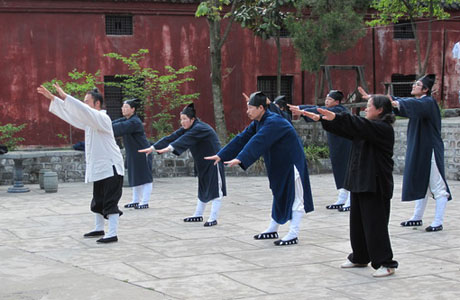
Taoist Wudangshan master, Wudangshan students
Progress versus evolution
Progress is a conscious effort in a particular direction while evolution is based on characteristics for survival.
Evolution is simply adapting to better survive in a specific environment. Evolution is self-correcting.
Progress implies a direction while evolution is indirected. Evolution has a tendancy to create more complicated organisms.
In this particular context we may use both progress and evolution. I think so.
Maybe we can use 'evolution' in a fighting context and 'progress' in a style or a form context.
What would you do? However, -progress or evolution-; sticking feathers up, our butt does not make us a chicken.
The story of Edisonís light bulb says
he failed 1000 times before having success.
When asked about it Edison said: "I have not failed 1000 times."
ĒI have successfully discovered 1000 ways to make not light!"
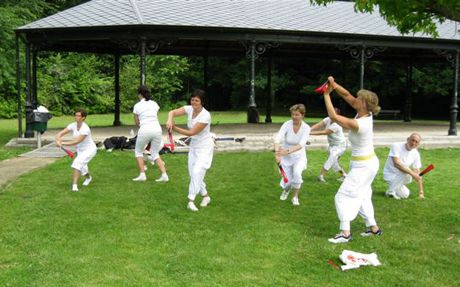
Tai Chi is the process, not the end.
Making mistakes is inevitable and healthy.
Your response to the mistake is what counts.
Remember: Tai Chi is not a "work-out process".
Tai Chi is a "work-in process".
Tai Chi mastership is the ability to put into effect what is in the mind.
The trouble with Tai Chi students is not that they donít know,
but that they know so much that ainít so.
There is a dualism between facts and the ideas of those facts in the mind.
For example:
A real Tai Chi master seems to do many things at the same time. That ainít so.
In fact he does one thing at once.
In Tai Chi Chuan never do two things at once.
The shortest way to do many things is to do only one thing at one time.
Never do two things at once.
You must have Yin and Yang in your hands.
All beings have Yin/Yang aspects, inside/outside, front/back, upper/lower, left/right, left arm/ right arm Ö
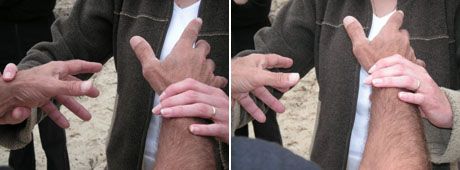
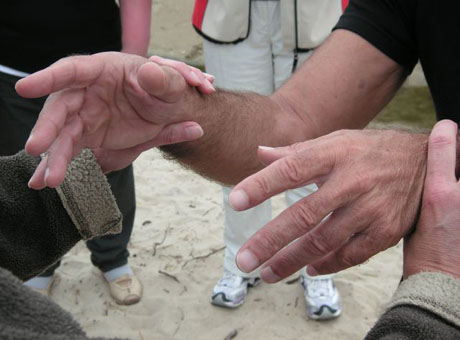
Tiny Yin-Yang turnings of both hands can make a world of a difference.
The positions of arms and hands determine real Tai Chi Chuan.
Tai Chi Chuan at his highest level.
But
progress means not moving towards a final state of perfection
It's simply moving up a particular order.
Real progress involves growing and developing.
Each man's life represents a road toward himself.
Herman Hesse.
We struggle to attain self-knowledge, and sacrifice much on the road toward it.
Sometimes progress means to turn back, doing an about-turn
and walking back to the right road.
The great thing is not so much where we stand
as in which direction we are moving.
In Tai Chi Chuan we do not progress absolutely or chronologically.
We progress sometimes in one dimension and not in another.
We progress partially.
"If you make a mistake and do not correct it, this is called a mistake".
(Chinese proverb)
The road to success is always under construction.
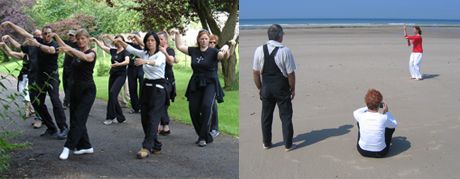
You cannot progress overnight from beginner to advanced
only by willing.
Our will thereís an end onít.
You cannot progress overnight in 10 lessons.
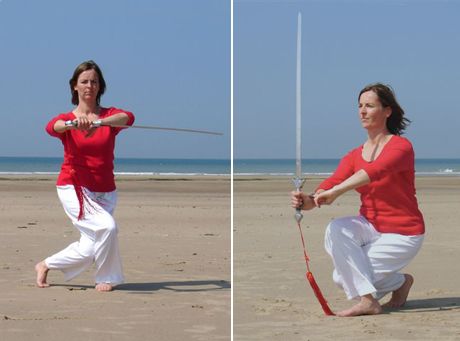
Style is a guide, not a jailer.
Each part of your body should be connected to every other part.
Style makes clear if you have integrated
the principles of yin and yang.
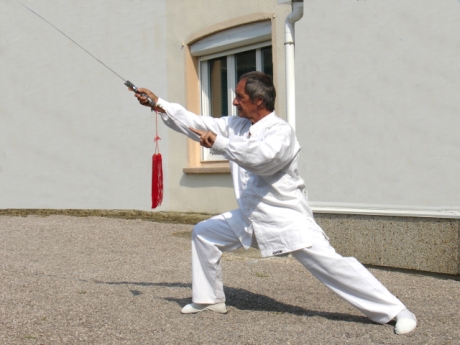
Cross substantiality - connectivity:
Each part of your body should be connected to every other part.
"To know is to relate".

To know is to relate (Chinese proverb).
It is a characteristic of advanced Tai Chi players
not to do desperate things.
Life is a continuum of changing processes, we are the processes.
In Tai Chi Chuan we do not progress absolutely, we progress partially.
We progress sometimes in one dimension and not in another.
The art of progress is to preserve order amid change
And
to preserve change amid order.
Do not confuse motion and progress.
A
rocking horse keeps moving but does not make any progress.
The concept of progress is meaningless.
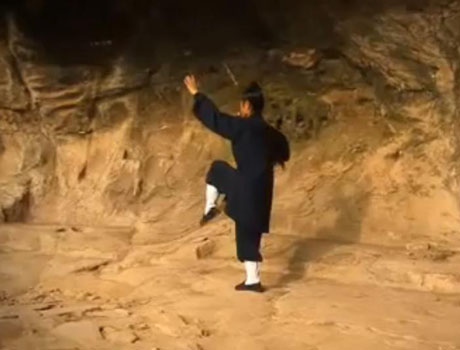
We have to define our goals to measure or define progress.
The logical end of all progress would be some sort of Utopia.
To know the road ahead, ask those who are coming back.
Chinese proverb
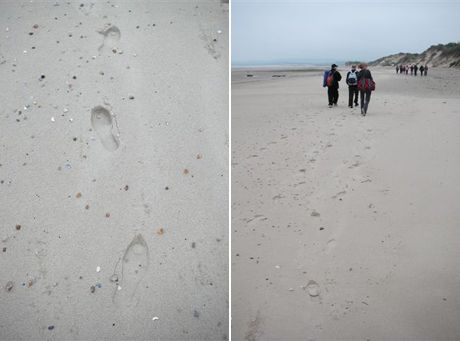
A journey of a thousand miles begins
with a single step (Lao Tse)
Fear is a mind killer.
Taking a new step is what we fear most.
Never stop testing the form.
We are in the right road of progress if we are making experiments.
You look, you don't see, you hear, you don't understand.
You feel, then you know.
(Chinese saying)
Let me be clear, I am not 'the Great Dragon Warrior', I am a Tai Chi student. I am clear about the objectives in my
Tai Chi training; Tai Chi Chuan is the great and complete martial art that it's said to be. I am not a very good student,
I am a good student and a good student discovers the many possible ways of looking through different angles being able to
verify the solution. This makes my own learning more enjoyable, and builds confidence in the doing. Never stop testing.
Go your own way, make experiments, according to legend Ving Tsun (one of the best fighting systems) has been practiced and
pioneered by a woman with great succes.
You make progress if you can see beyond the physical and mental bounderies. So, your Tai Chi practice must lead you to
transformation, one will never be the same again, one will never do the same again. Carry on, have fun, but none of it
leads to what you already are. Never stop testing. Reality is good, but reality is only in the present and it is only that
what we are now that really matters. If we do not feel the experience of unconditional love, joy and peace (which have no
oppsites unlike pleasure or progress) there is something amiss. A Tai Chi style is a tool to progress. I 'm very happy
with the Old Yang style I practice and I teach, if your Tai Chi style holds to the Tai Chi classics, then it is a correct
way to progress. Look at things through different angles, move it, make experiments, compare and love the things you do.
You make progress if you doubt.
To doubt is to see duality.
To see duality is to see non-duality.
Look at things the way they are, and ask why.
Imagine things that never were, and ask why not.
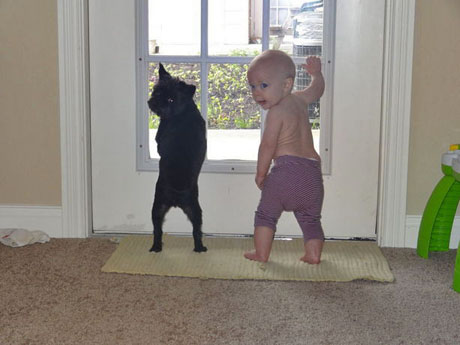
Progress is never a state, but rather a new way of looking at things
Nothing is single, all things in another's being mingle.
Tswang Tse describes the stages of progress :
1. Putting the world (*meditation) outside the mind.
2. Putting the things (*the 10000 things) outside the mind.
3. Putting life (*duality, the things and their names) outside the mind.
4. Percieving the Oneness. (*all things, outside-inside are one)
5. Not death and no life. (*that which kills life does not die).
Man is born to life, not to prepare for life.
Sometimes a life journey can take us to a place that is not on any map.
We must be willing to get rid of the life we have planned
so as the life that is waiting for us.
Joseph Campbell
 Tai Chi Classics: about your progress.
Tai Chi Classics: about your progress.